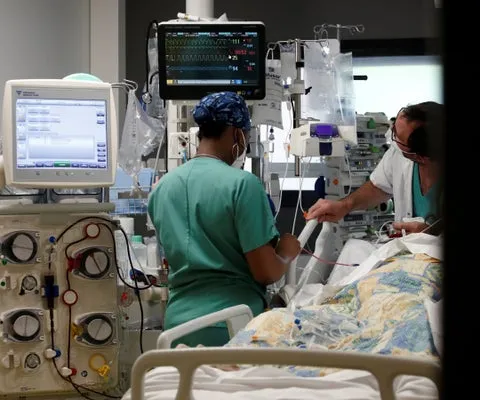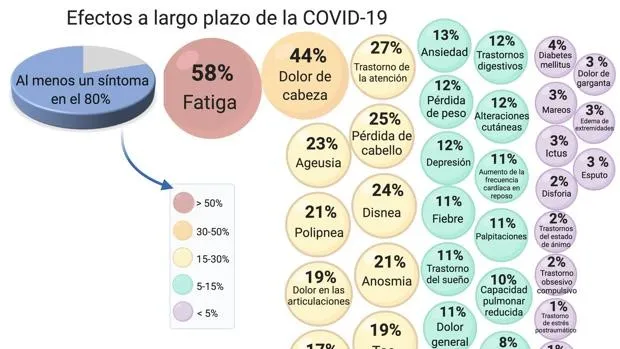
The after-effects of Covid-19 are multiple and affect almost all organs and systems of the body, to the extent that they can be disabling.
El Economista - Mexico City
Covid-19 does not end when the symptoms of the acute disease disappear and this makes specialists foresee that this pandemic will have more prolonged effects than what has been foreseen up to now.
There are more and more medical studies published in scientific journals such as Nature, Lancet and British Medical Journal on the sequelae that covid19 survivors are experiencing, particularly those who were hospitalized for the disease in severe form, and this is already being typified as Post Acute covid-19 Syndrome, commonly abbreviated as Post-covid Syndrome.
The internist hepatologist Jorge Luis Poo, in an interview with El Economista, comments that the after-effects are multiple and affect almost all the organs and systems of the body, to the extent that they can be incapacitating or fatal.
There are cases of patients who, after months, are readmitted to the hospital due to the after-effects of severe covid and end up dying. They did not die from the infection but died from the sequelae.
In a study conducted in the UK with 140-day follow-up in 47,780 patients, it was found that 14,060 patients (about 30%) were readmitted to the hospital, and of these a total of 5,875 patients died after discharge, or more than 1 in 10.
"It has recently been shown that severe acute covid-19 patients after being hospitalized and subsequently recovered, continue to manifest discomfort or symptoms of multiorgan dysfunction or even death, weeks or months after hospital discharge," says Dr. Poo.
He comments that this represents a risk that the sequelae of acute covid-19 may outlast the pandemic and not be properly managed or ignored. Hence, he stressed the importance of training all physicians, especially general and family physicians who are the first contact physicians who are receiving many of the patients who were treated in the hospitals converted to treat covid but who are not following up on the discharged patients.
For his part, family medicine specialist Pedro Peña Santoyo, who is a member of the organization of the event, stresses the importance of raising the alarm and putting this issue in the public discussion because if there is no adequate preparation to deal with it, the problem could explode with very high costs for the country in terms of the affected population being unable to work and be productive.
According to published studies, the most frequent sequelae are: fatigue in 31%; cognitive symptoms, 21%; new onset dyspnea (difficulty in breathing), 16%; fibrous lesions, 19% (detected with tomography); and in the case of survivors of acute respiratory distress syndrome (ARDS), fibrous lesions in the lungs are being recorded in 38.8% of cases.
The sequelae of patients who were hospitalized and survived severe covid range from pulmonary, hematological (related to blood diseases), cardiovascular, gastrointestinal and hepatobiliary (related to liver and gallbladder disease), dermatological, endocrine, neuropsychiatric and renal damage.
According to this approach, it is considered that the sequelae of severe covid should be addressed as a whole and not separately by each specialty, but as a syndrome, and in this sense the health sector authorities should be considering that these patients should receive comprehensive and long-term treatment.


